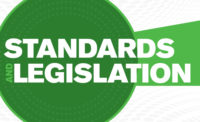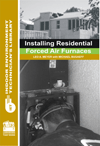ARLINGTON, Va. — The Appliance Standards Awareness Project (ASAP), the Air-Conditioning, Heating, and Refrigeration Institute (AHRI), and the American Council for an Energy-Efficient Economy (ACEEE) today applauded the success of the Commercial Package Air Conditioners and Commercial Warm Air Furnaces Working Group, established by the U.S. Department of Energy (DOE), to negotiate conservation standards for these products. After six meetings, the working group, comprised of industry, energy efficiency and environmental advocates, contractors, and agency representatives, including ACEEE, AHRI and ASAP, reached consensus and provided recommendations for energy conservation standards, test procedures, and metrics.
“Negotiated rulemakings are our preferred method for establishing energy conservation standards for covered products and equipment,” said Stephen Yurek, AHRI president and CEO. “Bringing stakeholders together to develop a rule that is both effective and achievable is the best way to ensure that our members’ products and equipment provide consumers and businesses with comfort, safety, and productivity while helping the nation achieve its energy reduction targets.”
“This negotiated outcome will provide huge energy and economic benefits for the nation,” said Andrew deLaski, ASAP executive director. “DOE, industry, and all the participants deserve credit for coming up with an approach that delivers those important national benefits and works for industry.”
“By every measure, this is the biggest efficiency standards rulemaking in DOE’s history,” said Steven Nadel, executive director of the ACEEE. “Over 30 years of sales, businesses from big box stores to commercial building owners will net savings of nearly $50 billion, while the nation will see energy reductions equal to all the coal burned in U.S. power plants in one year.”
The committee was established under the Appliance Standards and Rulemaking Federal Advisory Committee (ASRAC) in accordance with the Federal Advisory Committee Act and the Negotiated Rulemaking Act. Specifically, the group was tasked with addressing rules for the energy efficiency of commercial package air conditioners and heat pumps (specifically, air-cooled with rated cooling capacities greater than or equal to 65,000 Btuh and less than 760,000 Btuh split and package a/c and heat pumps) and commercial warm air furnaces, as authorized by the Energy Policy and Conservation Act (EPCA) of 1975, as amended. The scope excluded package terminal air conditioners and heat pumps (PTAC/PTHP), single package vertical units (SPVU), computer room air conditioners (CRAC), and variable refrigerant flow (VRF) systems.
For more information about ASAP, visit www.appliance-standards.org.
For more information about AHRI, visit www.ahrinet.org.
For more information about ACEEE, visit www.aceee.org.
Publication date: 6/15/2015
Want more HVAC industry news and information? Join The NEWS on Facebook, Twitter, and LinkedIn today!







